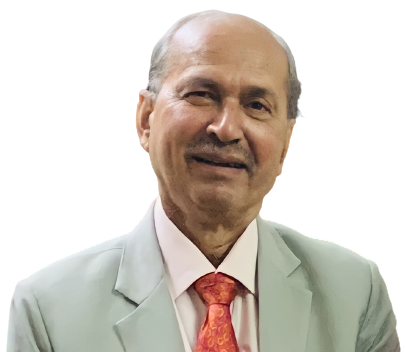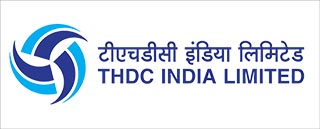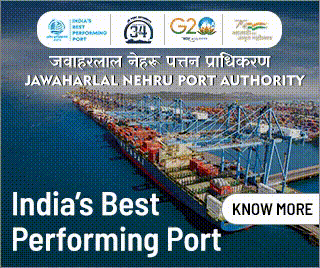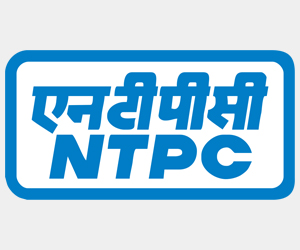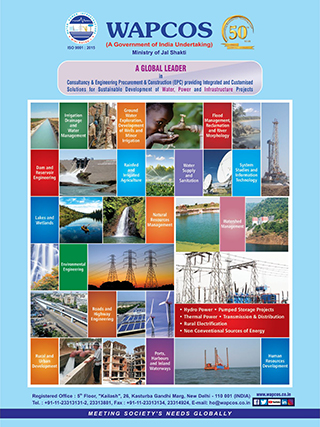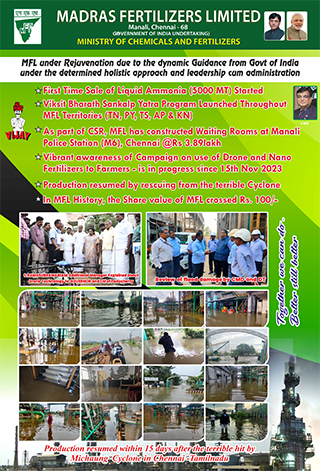whispers in the corridors

DEBATE (1)
Much has been said about switch over from present to Presidential form of government, many have spoken for and against it. To me it seems it may be any form of government in India, there would be no constructive improvement in the lot of poo, jawans, farmers and under privileged, because no political party has any vision document for India as a whole. Most of the political goons have self interest above national interest, looting the exchequer is their real motto. Poor voters are inaccessible to the elected representatives. Till money power plays a vital role in politics, no form of Government is worth it. India is in the hands of God which runs this poor nation called largest democracy on papers.
Harish Kumar
No need for so many Regulators/Tribunals
Yes there is no need for so many Regulators/Tribunals which only provide jobs to retired bureaucrats/judges. Government should recruit more staff particularly at junior/middle level so that decision taking becomes easy for Senior officers.Hold all of them for delays and impose heavy monetary fines on them for delay/deliberate wrong decision. This will reduce the need for tribunals etc.
S Gopal
Improve Efficiency & Productivity
The next 59 months are valuable for real economic growth, increased GDP and real incomes just by improved efficiency and productivity. Technology has to be harnessed to improve functioning of public services. While the country becomes “digital India”, its working can’t remain chained to the previous century. Similarly, attitudes of the public servants as also the citizens need to assimilate the change that must become the “usual” in a few months’ time as is the current practice, the last remnant of the twentieth century. Take the services provided by the CGHS (Central Government Health Scheme) to the serving and retired public servants in India, Members of Parliament sitting/pensioners, selected journalists and other prominent figures. The patient is required to first go to the dispensary, stand in a queue to get a token, proceed to see the allotted doctor, queue up again for his turn to consult the doctor. The process takes hours, patients keep standing in open at the window to collect the prescribed medicines, come again for indented medicines when notified (which are purchased from the local vendors). If not notified the patients have no remedy at their disposal. They get the medicine if their turn matures before the closing of the dispensing window. These are patients, not healthy people. Pensioners are all above age 60 years or more. This is the time when the health starts failing. Making a trip to the dispensary more than once may not be convenient nor it is productive. If the doctor refers the patient, he goes to the government hospital like RML or Safdarjung hospital for consulting the specialist doctor. He is prescribed tests and medicines. These medicines are to be collected from the dispensary. The patient waits in the queue to get a token to see the doctor who authorizes the dispensing of the medicines by making entry in the computer. Medicines required to be purchased are indented and the patient comes back after a few days to collect them. Now the question is: is it all necessary, productive or efficient way of working? The patient running high fever has also to wait for days to get his medicines! Is there scope for improvement in working to provide better services at no extra cost which can even lead to a lot of savings of public money and precious doctor/patient time? Why should the current drill be continued in digital India? Why should it not be changed to a more efficient and productive working? The time of the doctors wasted can be saved. Digital tools can handle prescription writing, the specialist doctor’s prescription gets recorded in the dispensary computer as the beneficiaries are allotted permanent Token Numbers and medicines can be delivered by a network of chemists at the patient’s doorsteps direct rather than travelling from the chemist to the dispensary to the patient. The objective of the CGHS is to provide timely and satisfactory health service promptly, improved working will yield saving of precious doctor time, dispensary pharmacist’s time, paper work and commuting. Above all, it will provide treatment at the time when it is needed most and not after several days. It might sound fanciful but is doable. Once it comes into operation, the resultant efficiency and productivity alone will mean double the number of doctors, who will devote their time to examining the patient and treating them. If we trust the government, the government too must trust the public servants. We are basically an honest people. Let us agree to respect our mutual honesty. Which is a better option: increasing number of doctors or improving efficiency and productivity? Now let us take the case of the judiciary, which holds the shortage of judges as the prime reason for ever pending cases. That is really untrue. The justice delivery system in India suffers from the Raj Era leisurely court procedures. Judges think a litigant has the whole life to pursue a court case. Lawyers think, being Learned they and the judges, need to continue the hair-splitting exercise ad nauseam. They load the cost on to the litigant as if winning a court case is akin to winning a lottery. Small cases take decades because affidavit is not in the right format or the lawyer of one of the parties is not available or witnesses have not been examined. AI & ML (Artificial Intelligence & Machine Learning) tools can reduce the whole exercise to just one day. But that would mean disruption of the business of hundreds of law firms doing brisk business at the cost of the citizens, making lawful as also unlawful gains, engaging in legal profession and politics simultaneously. Only the citizens stand to benefit. But they can benefit only if the present acknowledges the need to change and adapt it. The number of judges not only doubles instantly but quadruples merely by improving the productivity and efficiency of the judges and infrastructure. That is the benefit of application of technology to improve overall working of the public institutions, efficiency of the individuals and institutions and their productivity. The savings in costs will be enormous and so will be the improvement, leading to greater satisfaction.
M L Gupta

